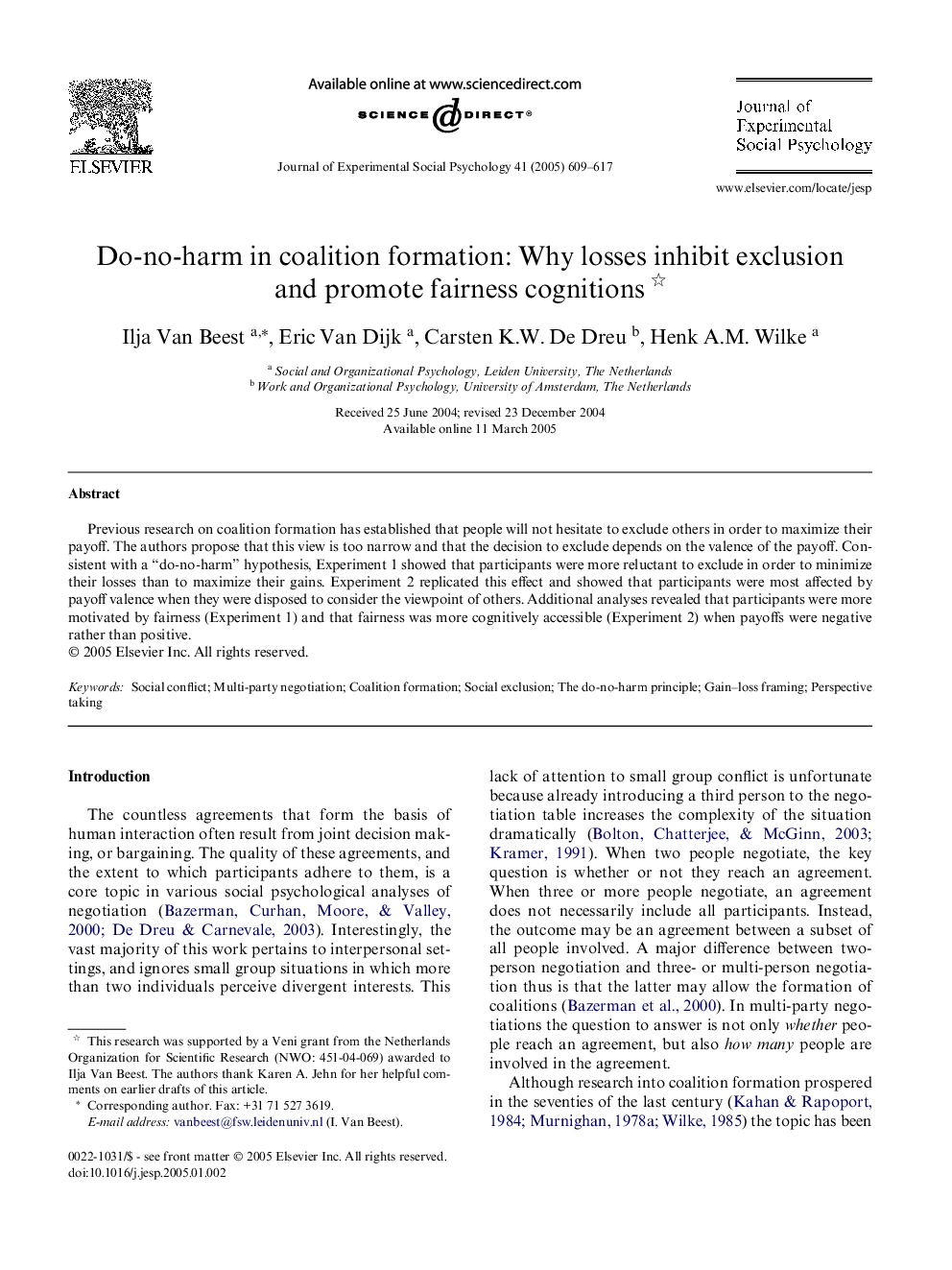| Article ID | Journal | Published Year | Pages | File Type |
|---|---|---|---|---|
| 10468818 | Journal of Experimental Social Psychology | 2005 | 9 Pages |
Abstract
Previous research on coalition formation has established that people will not hesitate to exclude others in order to maximize their payoff. The authors propose that this view is too narrow and that the decision to exclude depends on the valence of the payoff. Consistent with a “do-no-harm” hypothesis, Experiment 1 showed that participants were more reluctant to exclude in order to minimize their losses than to maximize their gains. Experiment 2 replicated this effect and showed that participants were most affected by payoff valence when they were disposed to consider the viewpoint of others. Additional analyses revealed that participants were more motivated by fairness (Experiment 1) and that fairness was more cognitively accessible (Experiment 2) when payoffs were negative rather than positive.
Related Topics
Life Sciences
Neuroscience
Behavioral Neuroscience
Authors
Ilja Van Beest, Eric Van Dijk, Carsten K.W. De Dreu, Henk A.M. Wilke,
